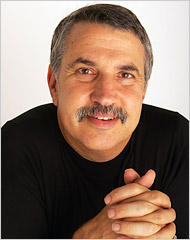 Sām returns with his son Zāl, Iran, Tabriz, ca. 1520s
Sām returns with his son Zāl, Iran, Tabriz, ca. 1520sIn 1010
Ferdowsi was finishing his
شاهنامه (Šāhnāmeh). He had started to work on it in 977. Thirty-three years.
 Detail
Detail When Ferdowsi finished the book, he went to the Imperial court to present it to the monarch of the time, who was not impressed: the jealousy and intrigues of the court poets were as vivid as they always have been.
Ferdowsi was discouraged, while remaining confident in his value, and the ending verses of Šāhnāmeh call in mind the Horatian
Exegi Monumentum:
I've reached the end of this great history
And all the land will talk of me:
I shall not die, these seeds I've sown will save
My name and reputation from the grave,
And men of sense and wisdom will proclaim
When I have gone, my praises and my fame
 Zāl is sighted by a caravan. attributed to Abdul Aziz, Safavid period, ca. 1525, opaque watercolor, ink, and gold on paper
Zāl is sighted by a caravan. attributed to Abdul Aziz, Safavid period, ca. 1525, opaque watercolor, ink, and gold on paper
Some time around 1020 Ferdowsi died at 85, in poverty, embittered by the royal neglect. His
Šāhnāmeh continued its life, in manuscripts and illustrations, in apocryphal stories about the book and about his author.
And folk tales from all those countries surrounding Iran originated from the stories told by
Šāhnāmeh: Persian tales, Pashtu, Kurd, Armenian, Georgian...
Since the start of the XIXth century scholarly editions began. An edition prepared in India in 1829 was based on the comparison of 17 manuscripts, then followed an edition prepared in France, more accurate, as it was based on the comparison of 30 manuscripts. Only all these manuscripts were from the XVth century, much younger than the original. Much later, by 1970, the so called Moscow Edition, in nine volumes, became to be considered the standard: it was relying on manuscripts from 1276 and 1333.
Following the discovery in Florence of a manuscript dated 1217 a new critical edition was started in 1990 and completed in 2008: the
Khaleghi-Motlagh edition.
 Detail
Detail We know it as
The Book of Kings, because
šāh is a Persian name with the meaning of King, or Emperor. We know it also as
The Great Book, because the same word,
šāh, means, if we take it as an adjective, Great. It is a monument of the Persian identity, and today's readers in Iran can understand the text without need of scholarly glosses: the Persian language remained the same as it was thousand years ago, and that miracle is due to the greatness of
Šāhnāmeh.
 Monument of Ferdowsi in Tehran
Monument of Ferdowsi in Tehran What is the
Book of Kings? A poetical chronicle of Persia, from mythic times down to the Islamic conquest. Ferdowsi was a Muslim, while his book put the greatness of the Pre-Islamic past in opposition to the present. That is because
Šāhnāmeh has a deeper meaning. Among all tyrants time is the most absolute and nothing can escape from its destruction. Past cannot be lived again, but it shaped your identity for ever: your memories, your language, your values. The identity, shaped along centuries by your ancestors, can be as resilient as time is, regardless of any radical changes brought by history.
 Late-16th-century illustration of a scene of the Šāhnāmeh, showing King Solomon
Late-16th-century illustration of a scene of the Šāhnāmeh, showing King Solomon
At the
Freer and Sackler Galeries in DC an exhibition these days is devoted to
Šāhnāmeh and its thousand years of life. Most images in this post are of exhibits from there.
 one of the oldest handwritten Šāhnāmehs is kept at Ferdowsi Library in Dushanbe, Tajikistan
one of the oldest handwritten Šāhnāmehs is kept at Ferdowsi Library in Dushanbe, Tajikistan  Ferdowsi [figure on the far left] encounters the Court poets of Gbazna, ca. 1532 (jacket art from a painting by Āqā Mīrak)
Ferdowsi [figure on the far left] encounters the Court poets of Gbazna, ca. 1532 (jacket art from a painting by Āqā Mīrak)















































